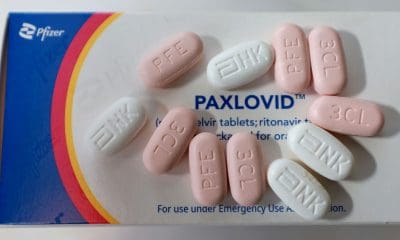Health
New Study Suggests Pharmaceutical Companies Manipulate Patents to Maintain High Insulin Costs


The Problem with the Orange Book
The financial burden of high insulin costs has long been attributed to the FDA's regulatory framework. However, a new study reveals that pharmaceutical companies are also using patenting processes to unfairly maintain high prices. The Orange Book, a document that governs patent ownership of approved medications, devices, and therapeutics, plays a significant role in allowing manufacturers to operate without competition and sell at higher prices for longer periods of time.
Insulin Products and Patent Manipulation
Insulin products have been particularly affected by patent manipulation. According to the study published in PLOS Medicine, the gaming of the patent process has caused pricing issues in the insulin marketplace. Despite manufacturers committing to cap out-of-pocket insulin costs at $35 a month in March 2023, there is still a lack of competition and high prices for these drugs that have been around for a long time.
Analyzing FDA and Patent Data
The study analyzed FDA and patent data on insulin products from 1986 to 2019. Researchers found that insulin products averaged 16 years of market protection, compared to the median of 14 years for other small-molecule drugs. They also discovered that patents filed after FDA approval, particularly for delivery mechanisms like injector pens, played a significant role in preventing potential competitors from offering insulin systems.
Breaking Up Patent Thickets
The study suggests that disincentives may be necessary to break up patent thickets. These thickets, created by overlapping patents, make legal challenges more difficult. In two-thirds of the drug/device combination products offered by insulin manufacturers, patents that were not connected to the actual drug itself were the last to expire, providing extended legal protection from competition for a median of 5.2 years.
Longer Exclusivity and Financial Burden
Extended exclusivity due to post-approval patents can represent a financial burden for patients. A six-year extension of exclusivity could result in hundreds of thousands of dollars in additional costs or force patients to use cheaper and less-effective insulin delivery systems. The study underscores the need for regulators to set new standards for what changes deserve the full legal protection of a patent, focusing on rewarding new therapeutic innovation rather than minor tweaks.
Government Steps Towards Restricting Patent Manipulation
There are signs that government officials are taking steps to restrict patent manipulation. The U.S. Federal Trade Commission (FTC) recently announced its appraisal of over 100 patents listed in the FDA's Orange Book, including those for inhalers, EpiPen injectors, and medicated eye drops. While insulin products are not currently on the list, the changes brought about by the FTC's actions could affect them. Drugmakers have been given 30 days to withdraw or amend their Orange Book patents to meet current standards, potentially leading to evaluations of patents in other areas, including insulin.


Hey there! I’m William Cooper, your go-to guy for all things travel at iMagazineDaily. I’m 39, living the dream in Oshkosh, WI, and I can’t get enough of exploring every corner of this amazing world. I’ve got this awesome gig where I blog about my travel escapades, and let me tell you, it’s never a dull moment! When I’m not busy typing away or editing some cool content, I’m out there in the city, living it up and tasting every crazy delicious thing I can find. Join me on this wild ride of adventures and stories, right here at iMagazineDaily. Trust me, it’s going to be a blast! 🌍✈️🍴









